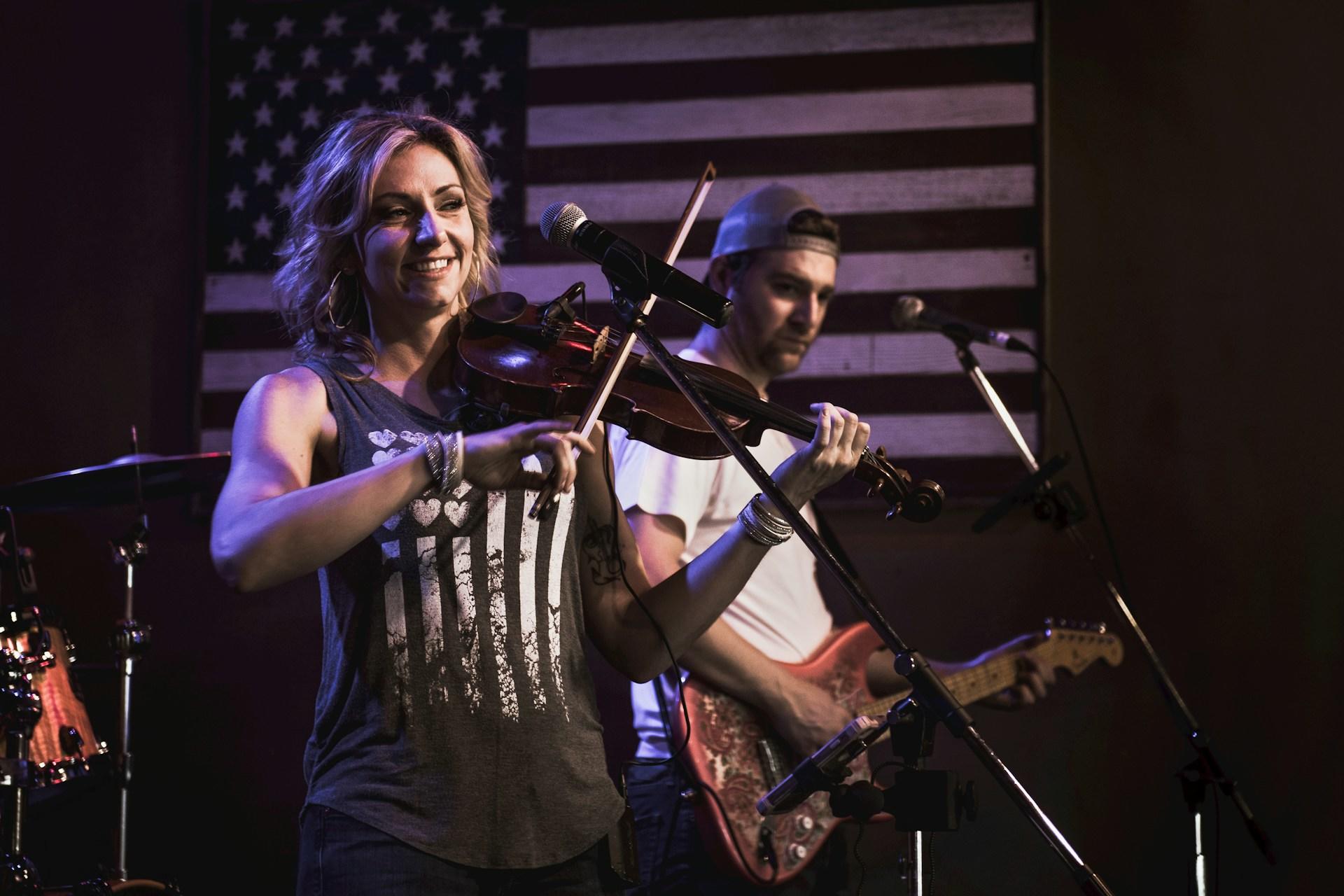If, unlike many people, your passion for singing exists outside of the comfort and flattering acoustics of your own bathroom, perhaps the idea of offering singing lessons san diego, or elsewhere, and inspiring others to learn to sing appeals to you.
Sharing your passion for song and introducing children to the world of music is a fabulous way to turn your favourite means of expression into a career.
Singing is a daily activity for many people, whether it’s in the shower, doing the dishes, rehearsing with a choir or taking part in musical theatre productions.
For those who make a career out of their passion for song, helping others who are learning how to sing is a fabulous opportunity to share a passion and enthuse others.
Whether you become a private singing coach or lead your own choir, there are many ways to establish yourself as a voice teacher and even inspire others to follow in your footsteps as you bring many voices together.
Contrary to what most people believe, being born with a ‘good singing voice’ isn’t the only way to develop yourself as a singer – the ability to sing can be learnt.
The teaching of music is a booming industry, and there are many possibilities for those who work within it.
Want to give private lessons?
Join the Superprof community and share your knowledge with interested and motivated students.
Where Can I Provide Singing Lessons?
The first thing to think about once you decide to become a singing teacher is where you can teach singing.
Some places will be more fitting than others according to your aspirations as a singing coach.
Here are a few ideas:
- Teach Singing Online: This is an ideal option for those who wish to be self-employed. You’ll be able to have full control over your lessons, prices and hours. As an online instructor, you’ll have to familiarise yourself with teaching via webcam.
- Become a Private Singing Teacher: If you value the benefits of one-to-one accompaniment and guidance with adult singing lessons, offering in-home voice lessons is for you. Face-to-face teaching is particularly effective, and there is a firm basis for a relationship of trust between teacher and pupil.
- Teach Singing at a Music College: If you’re looking for a more stable way to classically train students, music colleges and conservatoires are for you.
- Teach Music in a School: For those who enjoy working with children and want to branch out further than singing and performing, becoming a music teacher in a school is the perfect option. This gives teachers the opportunity to assist youngsters in their discovery of the world of music s a whole.
- Set Up a Choir: If you dream of working as part of a team and bringing your own musical project to life before the eyes of your spectators, starting your own choir and leading your members on their own musical journey is a rewarding option. Whether it’s gospel singing or a chamber choir, group singing is highly enjoyable.
What Qualifications are Required of Singing Teachers?
So, there are many ways to teach singing. Among these possibilities, some require more from you than others in terms of proving your teaching ability before you help others who are learning to sing.
The course content for a music degree is varied and offers plenty of opportunities for self-expression. For example, music students are assessed in their ability to perform on one or more instruments (including voice) as well as their composition skills and their understanding of musical theory and their level of musical ear training.
It is certainly reassuring if a teacher has some of these qualifications, though by no means a necessity.
When you’re heading towards a musical career, studying music at a high level will open you up to a wider knowledge of the art of music and give you a deeper understanding of the musical disciplines that interest you.
Exploring the wider world of music may confirm your desire to pursue a career in teaching, or it could also help you discover a new passion.

Depending on your chosen method of teaching singing as well as the level you wish to teach, there are several qualifications you may need.
What’s the simplest route into teaching singing?
Teaching as a Private Tutor.
There is no legal obligation when it comes to your qualifications if you decide to become a one-to-one in-home singing teacher.
A self-taught vocalist can therefore easily become a vocal coach, and a lack of formal qualification does not necessarily make for lack of skill or knowledge.
As an in-home singing teacher or a voice coach advertising online tutoring jobs (via a Skype or Zoom call), you’ll rely on your personal experience to find and teach pupils.
For instance, when advertising your services, you should emphasise your study of music, your experience as a singer and any participation in choral projects which will help you in your career as a voice teacher.
If you’d like to teach music in a school, a few things will be required, as there are for every teacher in state education. Aspiring high school teachers need a good grade in the subject (in this case, ideally Bachelor of music) and Postgraduate Certificate in Education (PGCE).
As a degree subject, music is incredibly practical to study. Students are required to perform, as well as lead performances as conductors or choirmasters. The musical leadership skills demonstrated at university are useful for future teachers who can see themselves leading ensembles.
For those who know that they want to work towards a career in music very early on, options begin opening up from the end of their academic careers. One major step on the path towards teaching singing professionally is choosing your high school options accordingly.
As finally, teaching singing at a music college or conservatoire requires that you have followed a specific pathway before you apply for a job. As someone who will be teaching on the same level as university lecturers, you will need to be a true expert in your field.
This means that you will need to be highly qualified as well as have a good level of knowledge and authority when it comes to the world of music.
Want to give private lessons?
Join the Superprof community and share your knowledge with interested and motivated students.
What Should I Charge for Giving Singing Lessons?
Have you decided to grow your teaching career as an in-home singing teacher? Before you take on your first pupil, you’ll need to fix a rate for your tuition.
In order to do this, you should approach the task of setting a rate with a cautious and objective mindset.
The first thing to bear in mind is that your prices should reflect the services you provide rather than what you would like to earn.
When establishing yourself on the market for private singing lessons los angeles, there are a few things you should take into account:
- Your musical training and experience
- The profiles of your future pupils (beginner, intermediate or advanced)
- Your geographical location
- Your competition
These are four things you should closely consider.
The more experienced and qualified you are, the higher the value of your teaching will be.

You will also realise that rates for one-to-one lessons vary according to location. This is usually linked to the rule of supply and demand.
Before putting a price on your services, make sure that you take the time to familiarise yourself with the competition.
This means looking at the general profile of other singing teachers and the prices they charge.
Once you’ve analysed all of these key elements, you’ll feel better equipped to settle on a final hourly rate that makes you an attractive singing teacher.
How to Plan a Singing Lesson
Let’s have a look at the practicalities of teaching singing.
So, you’ve found your students and now you’re about to plan your first lessons.
It’s important that you adapt your coaching to the individual profiles of each of your pupils. This means that you should pay particular attention to their skills and knowledge during your first meeting, as this will help you set goals and plan singing lessons austin in the future.
One of the essential tips to share with your students is to look after your vocal chords!
This means properly warming the voice up before attempting complex melodies.
Here are a few steps to a singing lesson that can be used as a guide:
- Throat relaxation
- Vocal warm-up exercises
- Diction and breath control vocal exercises
- Working on posture
- Learning vocal techniques (such as pitch placement and vibrato)
- Studying a song and applying singing techniques learnt
Of course, there may be more or less of these steps depending on the level of your pupil.
Once you’ve taught the basics, your student will be able to begin developing their own vocal techniques by interpreting what they have learnt.
Singing teachers in particular also have a responsibility to teach their students about maintaining their vocal health with appropriate warm-ups, breathing exercises and singing techniques to avoid the risks of straining the voice by trying to reach too high a pitch.
When planning the structure of your lessons, bear in mind that your pupils have decided to take singing lessons for many different reasons:
- To gain self-esteem
- For audition preparation
- For pleasure
- To improve their vocal skills
So, it’s up to you as a singing teacher to adapt your lessons to their needs and goals.
What Equipment do I Need as a Voice Coach?
Singing, by nature, is a low-equipment hobby, as the instrument is the voice!
This means that it is possible to teach singing without any musical instruments.
But of course, singing is a large part of music, which includes scores and instruments.
Let’s have a look at the basics of singing lessons.
If you’re a musician yourself, you’ll easily be able to accompany your students on the piano or guitar to help your students sing as part of an ensemble.

Add a music stand (for holding parts and lyrics), a metronome (to set to tempo) and a tuning fork (to start on the correct note), and you’ll be perfectly equipped to give your first lesson.
Up until this point, things are relatively simple, but be prepared for the difficulties you may encounter as a singing teacher.
Such difficulties could include:
- Your students are not familiar with music theory. This may make it difficult for them to follow their parton a score, so you may have to turn to working on their musical ear.
- You teach singing at your student’s home. This could mean that you are without a piano during your lessons, meaning you have to find another method of accompaniment.
To combat these problems, a laptop with a good microphone is your best asset.
As a portable computer, you can take it everywhere you go, and it will give you the means to view music files to teach your pupils, film and record them singing, and use software for editing recordings.
So, once you’ve got all of your equipment, all that is left for you to do is start teaching!
Here are a few questions to ask yourself before you get started in your teaching career:
- Are you an experienced singer or performer who is passionate about sharing their passion?
- How good is your knowledge of vocal techniques?
- How able are you to adapt to the individual learning styles and personal objectives of each student?
- Do you know what your strengths are as a teacher and how to use them to improve the quality of your lessons?
- Do you have adequate knowledge of music theory?
So, the answer to the question about whether any certain qualification is required to teach singing depends on the chosen field and aspirations of the teacher. One thing is, however, always the same: your own musical ability must be fantastic if you want to help others achieve singing success.
Want to give private lessons?
Join the Superprof community and share your knowledge with interested and motivated students.















